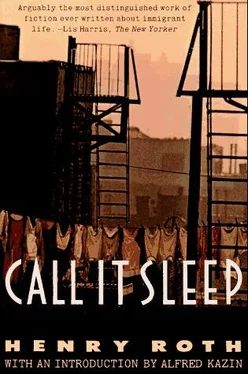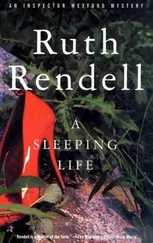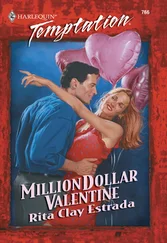His questions went unanswered. He only knew that when supper was over he wanted very much to like Luter. He wanted to like any man who praised his mother and guided his father into untrodden paths of amiability. He wanted to like him, but he couldn’t. But that would pass, he assured himself. As soon as Luter came again he would like him. Yes, the very next time. He was sure of it. He wanted to. As soon as he got used to his eyes. Yes.
A little while after dinner, Luter got up to go. His father protested that he had just come, that he ought to stay at least another hour.
“I also have to work in the morning,” Luter reminded him. “Otherwise I would stay. It’s heaven compared to my landlady’s.” And then he turned to David’s mother, and in his slow way, smiling, extended his hand. “I want to thank you a thousand times, Mrs. Schearl, I haven’t had so good a dinner or so much to eat since my last uncle was married.”
She reddened as she shook hands with him and laughed. “You’ve praised everything but the water you drank.”
“Yes.” He laughed also. “And the salt. But I was afraid you wouldn’t believe me if I said their flavor surpassed all others.”
And after exchanging “Good-nights” and patting David’s head (which David wasn’t quite reconciled to) he left.
“Ha!” his father exclaimed exultantly after he had gone. “I told you this cursed wandering from job to job would end. I’m working for Dolman’s Press to stay. Now time may bring something — who knows. There are two other foremen there. I’m as good a pressman as any of them. I know more about that iron juggler than they do. Who knows? Who knows? A little money. In time I might even suggest to him that we try— Well! In time! In time!”
“He looks like a very decent man,” said his mother.
“Wait till you really know him!”
And from Luter’s departure to his bedtime, David never remembered spending so serene an hour in his father’s presence.…
IV
“NOT a single one?” Luter was asking with some surprise. “Not in the old land either?”
The old land. David’s thoughts turned outward. Anything about the old land was always worth listening to.
“Not one,” his mother answered. “Nothing ever came to my hamlet except the snow and the rain. Not that I minded. Except once — yes. A man with a gramophone — the kind you listened to with ear pieces. It cost a penny to listen to it, and it wasn’t even worth that. I never heard anything labor so and squawk. But the peasants were awed. They swore there was a devil in the box.”
Luter laughed. “And that’s all you had seen before you came here to this turmoil?”
“I’ve seen little enough of it! I know that I myself live on one hundred and twenty-six Boddeh Stritt—”
“Bahday Street!” Her husband corrected her. “I’ve told you scores of times.”
“Boddeh Stritt,” she resumed apologetically. He shrugged. “It’s such a strange name — bath street in German. But here I am. I know there is a church on a certain street to my left, the vegetable market is to my right, behind me are the railroad tracks and the broken rocks, and before me, a few blocks away is a certain store window that has a kind of white-wash on it — and faces in the white-wash, the kind children draw. Within this pale is my America, and if I ventured further I should be lost. In fact,” she laughed, “were they even to wash that window, I might never find my way home again.”
His father made an impatient gesture. “Speaking of Yiddish plays,” he said, “I did see one. It was when I stayed with my father in Lemberg, the days of the great fair. They called it the Revenge of Samson. I can see him yet, blind, but shaggy again, waiting his time against the pagans. It moved me greatly.”
“For my part,” said Luter, “I go to the theatre to laugh. Shall I go there and be tormented when life itself is a plague? No, give me rather a mad jester or the antics of a spry wench.”
“I don’t care for that.” His father was brief.
“Well, I’m not mad about it either, you understand, but I was just saying sometimes when one is gloomy it does the heart good. Don’t you think great laughter heals the soul, Mrs. Schearl?”
“I suppose so.”
“There, you see! But listen, I have an idea. You know that the People’s Theatre always gives Dolman the job of printing its placards. Well, it has a stage that is never empty of tears — at least one good death rattle is heard every night. And if you like that sort of play, why I can talk to the agent or whatever he’s called and squeeze a whole month’s pass out of him. You know they change every week.”
“I don’t know whether I want to.” His father frowned dubiously.
“Why, certainly! It won’t be any trouble at all. And it won’t cost you a cent. I’ll get a pass for two, you watch me. I wish I had known this before.”
“Don’t trouble about me,” said his mother. “Many thanks, but I couldn’t possibly go away and leave David here alone.”
“Oh, that can be solved!” he assured her. “That’s the least of your worries. But first let me get the pass.” Luter left early that evening, before David was put to bed. And when he was gone, his father turned to his mother and said, “Well, did I make a mistake when I said this man was my friend? Did I? Here is one who knows how to express friendship, here as well as in the shop. Tell me, do I know a decent man when I see him?”
“You do,” was the mild answer.
“And you with your fear of taking strangers into the house!” he continued scornfully. “Could you ever have a better boarder than he?”
“It isn’t that. I’m glad to serve him dinners regularly. But I do know that most often it’s better for friends to be a little apart than always together.”
“Nonsense!” He retorted. “It’s your silly pride.”
V
TRINKETS held in the mortar of desire, the fancy a trowel, the whim the builder. A wall, a tower, stout, secure, incredible, immuring the spirit from a flight of arrows, the mind, experience, shearing the flow of time as a rock shears water. The minutes skirted by, unknown.
His mother and father had left for the theatre, and he was alone with Luter. He would not see his mother again until morning, and morning, with his mother gone, had become remote and tentative. The tears had started to his eyes when she left, and Luter had said “Come child, do you begrudge your mother the little pleasure she may get to-night?” David had stared sullenly at the floor, aware that a great resentment against Luter was gathering within him. Had not Luter been the agent of his mother’s going? And now how dared he reprove him for weeping when she was gone! How did he know what it felt like to be left alone? It wasn’t his mother.
“Now you look just like your father.” Luter had laughed. “He has just such lips when he frowns.”
There had been something in his voice that had had a peculiar sting to it. Hurt, David had turned away and gotten out his box in the pantry in which he saved both the calendar leaves he collected and whatever striking odds and ends he found in the street. His mother called them his gems and often asked him why he liked things that were worn and old. It would have been hard to tell her. But there was something about the way in which the link of a chain was worn or the thread on a bolt or a castor-wheel that gave him a vague feeling of pain when he ran his fingers over them. They were like worn shoe-soles or very thin dimes. You never saw them wear, you only knew they were worn, obscurely aching.
He fingered one of his newly-found acquisitions. It was one of those perforated metal corks that the barber used to squirt perfumed water on one’s head. One could blow through it, peep through it, it could be strung on a thread. He dropped it back into the box and picked up instead the stretched helix of a small window-shade spring. If one had these on one’s feet instead of shoes, one might bound instead of walk. High as the roof; far away at once. Like Puss in Boots. But if the mouse changed back into an ogre inside the puss — just before he died — I’m a mouse — an ogre! — Then poor Puss would have swelled and swelled and—
Читать дальше












